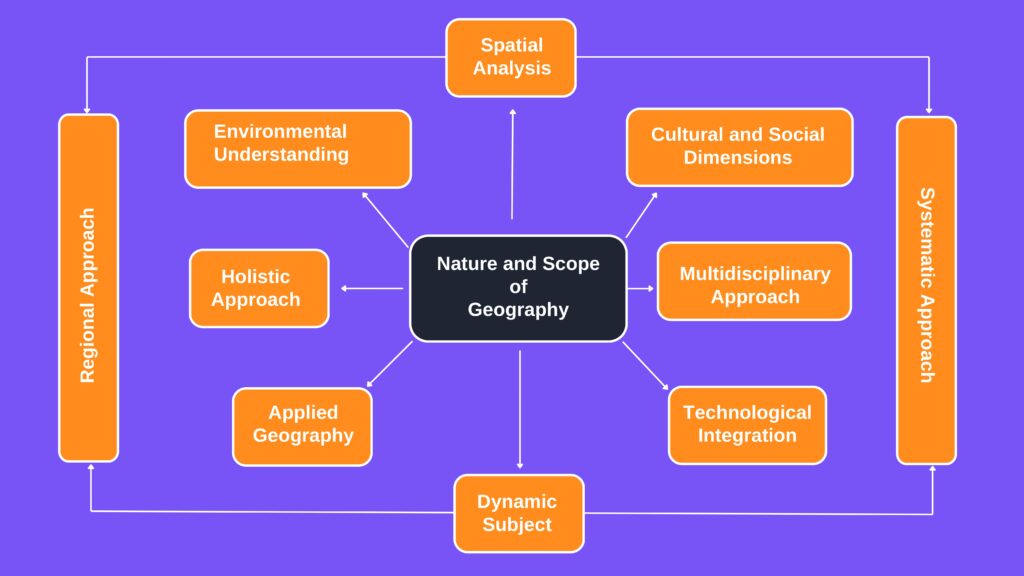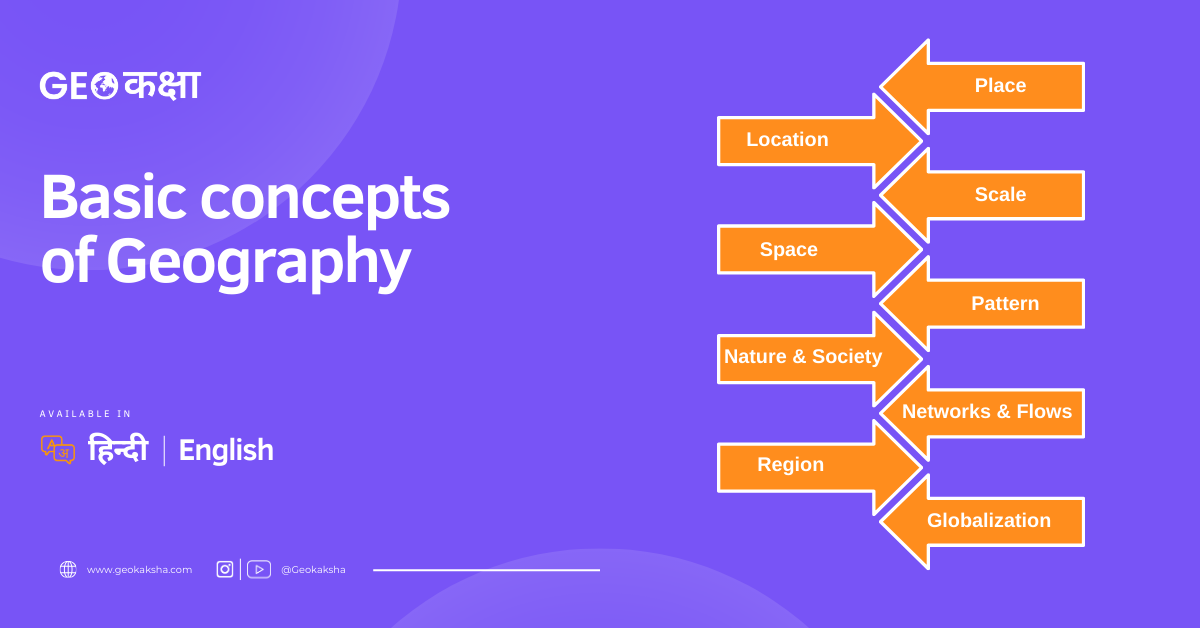Meaning and Definition
Rooted in the Greek words "Geo" and "Graphia", geography means description of the earth. It is referred to as the study of places, and their physical features, people, and their activities on the earth.
According to the great German philosopher Kant, “geography is a study of the earth.” But it is not mere description, it encompasses the study of man-nature interactions (on the surface of the Earth).
Richard Hearthstone characterizes it as providing systematic descriptions and interpretations of Earth's diverse characteristics. American geographer Ackerman underscores its emphasis on spatial distribution and relationships on Earth's surface.

Table of Contents
Nature and Scope of Geography
Dynamic Discipline: Geography is a dynamic discipline that encompasses the study of the Earth's evolving natural processes and human activities.
Spatial Analysis: Spatial analysis is central to geography, examining the distribution and relationships of phenomena across different scales.
Holistic Approach: Geography adopts a holistic approach, integrating physical and human phenomena to understand their interconnectedness.
Interdisciplinary Nature: Geography Draws upon various disciplines, including geology, sociology, and economics. It embraces an interdisciplinary approach to unravel man-nature interactions.
Environmental Understanding: Environmental understanding is a core aspect of geography, addressing issues like resource management and environmental degradation.
Social and Cultural Dimensions: In geography, the social and cultural dimensions of landscape are explored through studying human settlements, migration, and socio-economic patterns.
Technological Integration: Technological advancements, notably Geographic Information Systems (GIS), enhance the capabilities of spatial analysis.
Applied Geography: Geography finds practical applications in fields such as urban planning and disaster risk reduction, offering insights for sustainable development.
In essence, geography strives to comprehend the intricate relationships between humans and their environment, aiming to tackle contemporary challenges and foster a sustainable future through its diverse methodologies and interdisciplinary approaches.
According to the great German philosopher Kant, “geography is a study of the earth.” But it is not mere description, it encompasses the study of man-nature interactions (on the surface of the Earth).
Richard Hearthstone characterizes it as providing systematic descriptions and interpretations of Earth's diverse characteristics. American geographer Ackerman underscores its emphasis on spatial distribution and relationships on Earth's surface.



